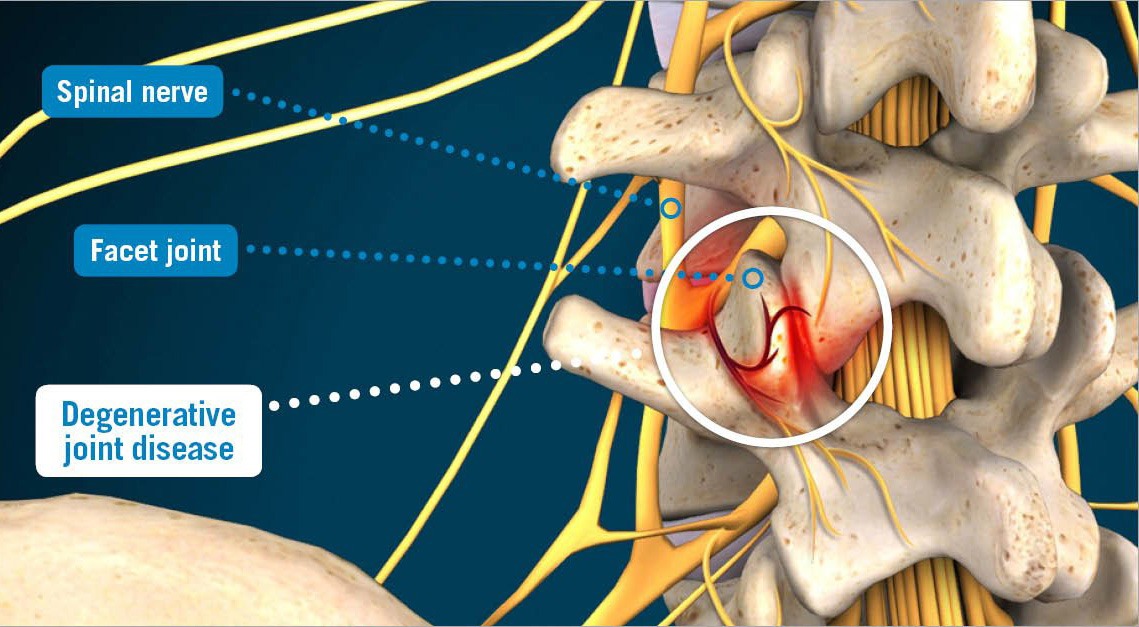- Conditions
- Procedures
- Patient care
- Why choose us
- Our Doctors
- Contact
Home » Spine Conditions »
Degenerative joint disease

Degenerative joint disease (DJD) is marked by the gradual deterioration of the articular cartilage within joints. In the spine, the joints that connect adjacent vertebrae and allow them to bend and extend freely are called facet joints. These joints are especially vulnerable to deterioration because they are involved in many movements while bearing the body’s weight. Once the cartilage wears away, bare facet articular surfaces grind against each other, causing inflammation, pain and stiffness, and stimulating the formation of bone spurs, or osteophytes. Bone spurs are extra growths of bone that pose the risk of compressing nearby spinal nerves.
Causes and symptoms
Degenerative joint disease of the spine, also called facet disease or spinal osteoarthritis, is primarily caused by the natural aging process, though it can be accelerated by factors like obesity, smoking, overexertion, gender, illness and genetic predisposition. It is not necessarily a symptomatic condition and, in fact, most people older than 50 probably have some degree of mild spinal joint degeneration that they don’t even notice. Symptoms occur when inflammation becomes more severe and/or anatomical abnormalities, like bone spurs, press on spinal nerves. The issues associated with degenerative joint disease can include any of the following:
- Throbbing or aching at the site of degeneration
- Reduced range of motion
- Tingling or numbness when spinal nerves are compressed
- An uncomfortable feeling of bone rubbing against bone, called crepitus
- Joint stiffness or spontaneous joint lockage
Treatment options
There is no cure for degenerative joint disease, though many people are able to manage their symptoms nonsurgically with the help of conservative therapies. Talk to your physician about a treatment plan that includes pain medication, stretching, physical therapy or behavior modification. In the event that weeks or months of using these methods prove ineffective at managing your pain, contact USA Spine Care. We will tell you more about our minimally invasive procedures that may be able to help you find relief from neck and back pain.
